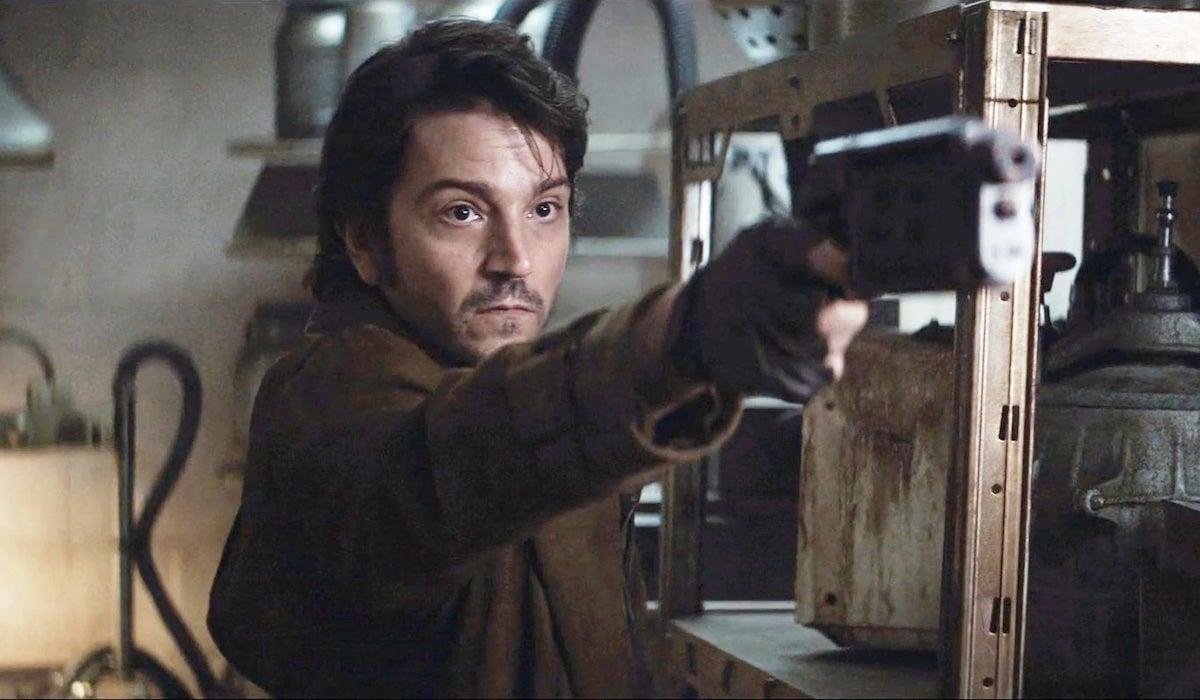If you click on a link and make a purchase we may receive a small commission. Read our editorial policy.
What Star Wars: Andor teaches us about rebellion
Lessons about rebellion and resistance from Star Wars: Andor.

Popverse's top stories
- How Critical Role’s fan community helps Matthew Mercer remember a decade of storytelling
- Inside the "gutsy decision" by Marvel to kill the Ultimate Marvel imprint, and why they were worried continuing it would be wrong
- Every Final Fantasy game is different, but these are the things that always stay the same [Gamify My Life]
What does it mean to rebel? The word has been said so many times throughout the Star Wars saga that some of us might take it for granted. Rebellion is more than a team name for the heroes, it’s an idea. It’s about taking down an oppressive force and overcoming adversity. The Disney+ series Star Wars: Andor explored these themes, showing us the difficult choices that come with rebellion.
The discussion was a central topic at the 2023 San Diego Comic-Con in a provocative panel called Star Wars Andor: Making a Rebel, Making a Rebellion. The spirited discussion explored what rebellion means, and what drives people to do it.
“Terms like rebellion and resistance always felt like great titles for the group. It wasn’t really until we got to Rogue One and Andor that those words started to get a little more meaning,” Jake Rowlett (San Diego State University) noted. “It’s how you find your place in the system, and actions you can take that throw a wrench in it.”
Robert A. Dagnall (San Diego State University) spoke about the Galactic Empire’s role in shaping rebels.
“It’s not like the Empire gives you a choice. The Empire is a progressive machine that gradually invades every part of everyone’s life. They don’t ever step back. They don’t ever step down. Eventually they are going to affect you, and oppress your life as well,” Dagnall noted.
Desmond Hassing (San Diego State University) reminded us that rebellion is also about self-preservation.
“To resist is to persevere. It is a way to naturally complete and continue your own existence. But rebellion isn’t resistance, it’s a roll of the dice. It’s not about protecting your own personal self; it’s about attempting to create something better than what currently exists,” Hassing said.
Author and biologist J. Dianne Dotson explored the relationship between rebellion and hope.
“Rebellions are built on hope, and hope is a choice. When an empire gives you no choice, you can take action. You always have a choice whether you want to go along with being oppressed, with being abused, with being forgotten, with being less than. You have a choice always in how you act, and you have a choice for hope. You can build a rebellion on that alone, but you can’t do it alone.”
“How much do you have to take before you start to rebel,” Hassing asked. “One of the reasons that we accept oppression from any type of circumstances, is because it’s become a habit to do so. You don’t start a rebellion by handing someone a rifle and telling them to rebel and find someone to shoot. You do it by teaching them habits of resistance.”
.From the captivating discussions on the importance of rebellion in storytelling to the insightful exploration of lessons drawn from the series, attendees were left with a renewed appreciation for the power of rebellion as a driving force for change. As we reflect on the panel's lessons, let us remember that rebellion is not just confined to a galaxy far, far away, but holds the potential to ignite hope and inspire action in our own lives. May the force of rebellion continue to guide us towards a brighter future.
Get to know, understand, and love the Star Wars franchise more with our Star Wars watch order, guide to all the upcoming Star Wars movies & TV shows, and all the Star Wars movies and Star Wars TV shows ranked.
About Comic-Con International: San Diego 2023
Dates
-
Follow Popverse for upcoming event coverage and news
Find out how we conduct our review by reading our review policy
Let Popverse be your tour guide through the wilderness of pop culture
Sign in and let us help you find your new favorite thing.
















Comments
Want to join the discussion? Please activate your account first.
Visit Reedpop ID if you need to resend the confirmation email.